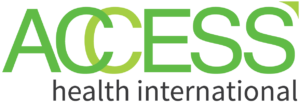
| India had over 500 million smartphone users in 2019. The use of digital technologies has risen following measures like the Digital India initiative and demonetization. The COVID 19 pandemic is moving many transactions online, including healthcare ones. It is an opportune time for technological solutions to address more healthcare challenges.
The Fintech for Health program in India is facilitating dialogue between a set of healthcare and fintech companies. Four of our partners convened on May 8th to understand each other’s work and to explore avenues for collaboration, with the overall objective of reducing out of pocket expenditure on healthcare, especially for low- and middle-income populations. The two healthcare organizations, Piramal Swasthya Management Research Institute and Swasti Health Catalyst, have over a decade’s experience in serving rural and disadvantaged populations in multiple Indian states. reach52 and Kratos Innovation Labs shared their technology solutions at the event. People spend out of pocket to access free services in the public health sector Piramal Swasthya works with the public health department of states to provide health information through a helpline, outreach primary health services using mobile medical vans, an IT platform for public health, and provides cancer screening in some states. Ajitkumar Sudke, Senior Director shared that government provides free services at public health facilities people spent out of pocket on certain medicines and diagnostics. Non-medical expenses such as on transport and logistics also weighed on their pockets. Fintech has the scope to provide options to insurance and credit to people without credit history Swasti provides low-cost holistic primary care to marginalized communities such as rural and urban poor, women in sex work, and factory workers. Hareesh B S, the CEO shared that their users wanted micro-insurance or other low-cost cover for secondary and tertiary care treatments so that these requirements do not cause catastrophic health expenditures. Swasti has also learned that the low-income individuals also want trustworthy care at reliable facilities. They are willing to pay for such services as they are becoming aware of the bigger costs of compromised health. Collaborations to convert challenges to opportunities Reach52 addresses primary care gaps supported by offline first apps through community access managers and provides access to low cost medicines, diagnostics, and insurance products. Edward Booty, CEO and team shared their key products and success of their work in the Philippines and Cambodia. Kratos uses technologies like blockchain with IoT integration, machine learning, and deep computer vision to develop products in supply chain and Small and Medium Enterprise trade domain areas. Satheesh Kumar, the Founder and CEO, presented FoodLens, a food supply chain platform that supports sustainability and financial inclusion for marginal producers. Having solved affordability challenges of underserved communities, both the technology firms look forward to extending their solutions to more contexts that may come up through the Fintech for Health program. Further discussions have followed the Roundtable. The healthcare providers are defining the challenges into detailed problem statements. The participants will together explore the appropriate solutions for the problems defined. Over the coming year, we aim to run pilot projects to test and evolve the solutions to ultimately empower people to afford and access healthcare better. After all, as Michael Dell says, collaboration equals innovation. |


